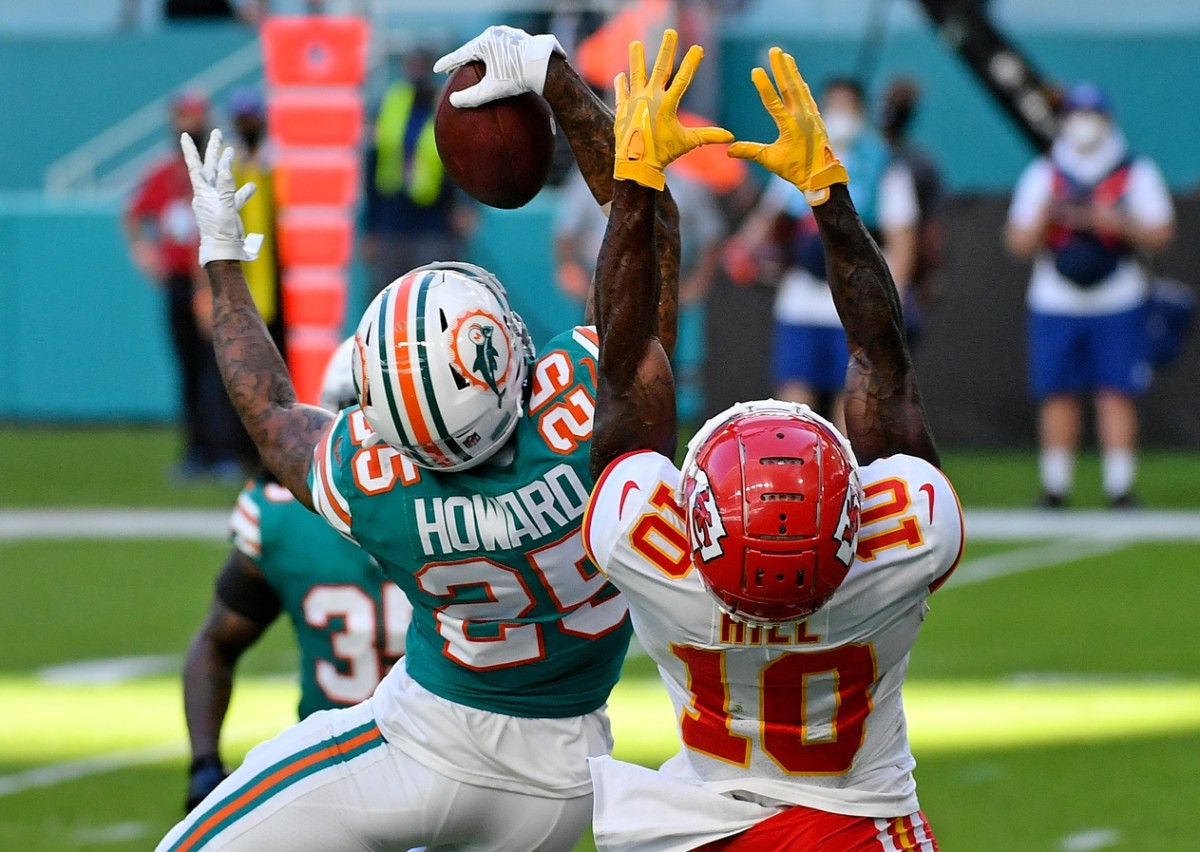FTX’s Miami Heat Arena Deal Terms Show Sports’ Crypto Fears – Sportico.com
On March 26, 2021, Miami-Dade County Mayor Daniella Levine Cava sent a memo to the county’s commissioners recommending the approval of a $135 million deal to rename the city’s NBA arena, the home of the Miami Heat, as FTX Arena.
The terms, negotiated between the county and FTX.US, the U.S. arm of one of the world’s largest crypto empires, would pay an average of $7.1 million over 19 years, on the high end for an NBA-only arena. Levine Cava’s memo, which Sportico reviewed alongside a copy of the contract itself, said the sum “significantly exceeds” the administration’s minimum estimates, and heralded the structure of the payments, which included $14 million due 10 days after it was signed. Despite objections about the speed of the process, the commissioners approved the agreement later that day.
It’s now unclear how much of that $135 million the county will ultimately see. The sudden collapse of FTX’s international business has sent billion-dollar ripples throughout the global economy, and after a failed takeover from a main rival, its future is murky. Should FTX.US be brought down by the collapse—its website said Thursday that trading may soon be halted—that could mean the end of the company’s sports deals, including naming rights for the Miami arena and California Memorial Stadium, used by Cal’s football team.
FTX wouldn’t be the first crypto lender whose financial struggles affected a sports team, league or facility. Earlier this year the NWSL was left in the lurch following the bankruptcy of partner Voyager Digital, whose assets were later acquired by FTX. Miami-Dade County’s FTX deal, however, sheds light on how marketing contracts are specifically structured when the payer is a deep-pocketed startup with a relatively unknown track record, and some of the challenges in vetting the companies themselves.
The mayor’s office said in a statement that the county was “currently reviewing and gathering information” about FTX’s future, and that it was prepared to take legal action if the contract terms aren’t fulfilled. Representatives for FTX and the county board didn’t respond to requests for comment.
The 19-year Miami agreement is structured with a $14 million initial payment—two years worth of obligations—followed by annual payments that start at $5.5 million in 2022, and end at $8 million in 2040, according to the contract. About $40 million of that money would be paid to the Miami Heat. When the team’s cut, the broker commission, and the PR costs were subtracted, the county estimated it would be paid $89.7 million over the full 19-year deal.
Should FTX default on the contract at any point, the contract says it would owe the county the next three years of payments. That would amount to $16.5 million if the default happens in Year 2 of the agreement, and $23.5 million if it happened in Year 16.
The upfront cost and the severance payments are critical to understanding the appeal surrounding big sponsorship deals with unproven companies in volatile industries. Not only did FTX commit to payments that “significantly” exceeded the county’s minimum expectations, the deal has protections for the county. If FTX were to default on the agreement tomorrow, according to the contract, the county would have received two payments worth $19.5 million total, and be owed another three years of payments, worth $17 million. That’s $36.5 million, for a deal lasting roughly 18 months.
That could of course become more complicated if FTX doesn’t meet the severance obligations. The statement from the mayor’s office said the county will “explore all legal remedies” if FTX is unable to fulfill the financial terms.
Prior to Mayor Levine Cava’s recommendation to the county board, the Office of Inspector General was asked to assist in a due diligence review of FTX. That report, dated March 17, 2021, includes a brief breakdown of FTX’s business, including FTX.US, which had been incorporated for a little more than 12 months. The report also profiled FTX shareholders and their legal history. In a memo to Cava presenting the findings, Inspector General Felix Jimenez said the report “is limited due to the amount of time we had to complete the review.” Cava’s recommendation to the county board, written the following week, notes that there were not major red flags in the inspector general’s review, “other than the firm has not been in business for long.”
By December 2020, Bitcoin was midway through its climb from $10,000 that July to $50,000 early in 2021 amid a renewed surge in interest around trading cryptocurrency. FTX was looking to host more of that activity, and at an all-hands meeting, founder and CEO Sam Bankman-Fried asked his employees to brainstorm ways to increase brand awareness.
“What are some big ideas?” he asked, according to a Fast Company report. One big idea emerged: “How about we put our name on a sports stadium?”
Roughly two months later, Miami-Dade County chief financial officer Edward Marquez contacted the local inspector general’s office. Government leaders were considering a naming rights deal for the Heat’s home, a county-owned arena, and requested due diligence on FTX. The Heat’s agreement with American Airlines had expired in 2019, and the county had exercised its option to take over naming rights control in exchange for a guaranteed yearly payment to the town’s NBA team.
Initially, according to the documents, the county was uncertain on whether the deal would be with FTX’s global brand or the U.S. firm, which was created to comply with this country’s specific regulations. “Through additional questions and subsequent discussions,” the report notes, it became clear that a deal would be done with the American arm. (This could be an important distinction, as FTX’s immediate financial problems this week occurred with its non-U.S. business).
The inspector general’s office looked into Bankman-Fried’s personal background as well as FTX’s other major shareholders. It was unable to determine a last known address for multiple notable shareholders. The county did procure an affidavit stating that none of the affiliated companies had any commercial connections, nor any intention to ever have commercial connections, with the Chinese government .
“We were given the request, and we complied with it as quickly as possible,” Marie Perikles, deputy general counsel for the county’s inspector general office, said Thursday in an interview. “Sometimes you’re given the luxury of time, and sometimes you’re not. It is what it is. We do what we can given the timeframe and the available information.”
Bankman-Fried, then 29 years old, signed the agreement from Hong Kong on March 24, 2021. (Later that year, FTX relocated its headquarters to the Bahamas.)
On March 26, Miami-Dade’s commissioners, representing the county’s 13 districts, debated approving the deal, with FTX lawyer Daniel Friedberg on hand. As part of the plan, the county would spend its share of the money on anti-gun violence measures, though few specific allocations were laid out in the initial proposal.
“Maybe the prayers of many crying mothers have finally reached God’s ears,” commissioner Jean Monestime said at one point, calling the vote the “best day” he’d had during 10 years on the commission before breaking down in tears.
Commissioner Danielle Cohen Higgins referenced “red flags” relating to the company’s ownership, according to local reports, but ultimately came around to support the deal.
Following from afar, Bankman-Fried tweeted, “This is the most stressful TV show I’ve ever watched.”
At one point in the proceedings, Frieberg responded to complaints about the process’ speed by saying, “there will be additional deaths” if the deal was delayed. That seemed to only further upset commissioner René Garcia, who would be the lone ‘No’ voter, having voiced his displeasure at the legislation finally being made public the previous evening. “The way this was brought to the county commission was wrong,” he said.
In a follow-up statement days later, Garcia explained that commissioners had been given only 16 hours to review “voluminous pages of background, contract, and other materials.”
In an interview Thursday, Garcia explained that his issues went beyond the proposal’s timing. For one, he believed a local company ought to be sponsoring one of the county’s most prominent assets.
“I thought that the deal was not a good deal,” Garcia said. “Obviously you see what’s happening now. People criticized me for it, and now I kinda was right.”
Garcia said he specifically remembers people attacking him for not wanting to do business with a growing cryptocurrency company. His vote came in the middle of Miami mayor Francis Suarez’s push to turn Miami into a cryptocurrency capital, which included taking his salary in bitcoin.
Now, the commissioners wait. FTX’s next check is due in January. If it defaults, the county will need to find another sponsor—or risk shuttering the programs FTX money has funded. In that world, Garcia isn’t sure the government will be any more wary of another young, buzzy company offering ready cash than they were 18 months ago.
“Unfortunately,” he said, “sometimes money talks.”



